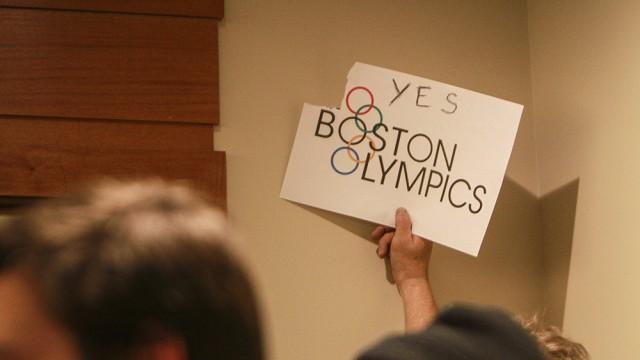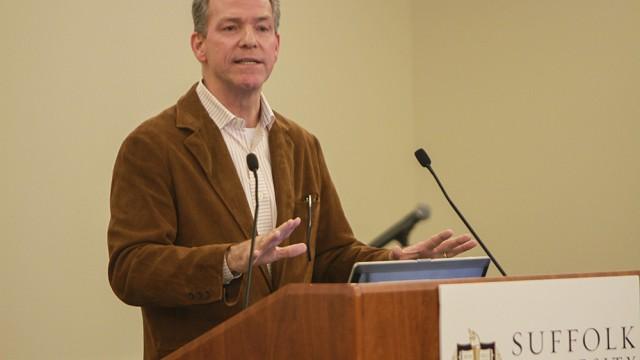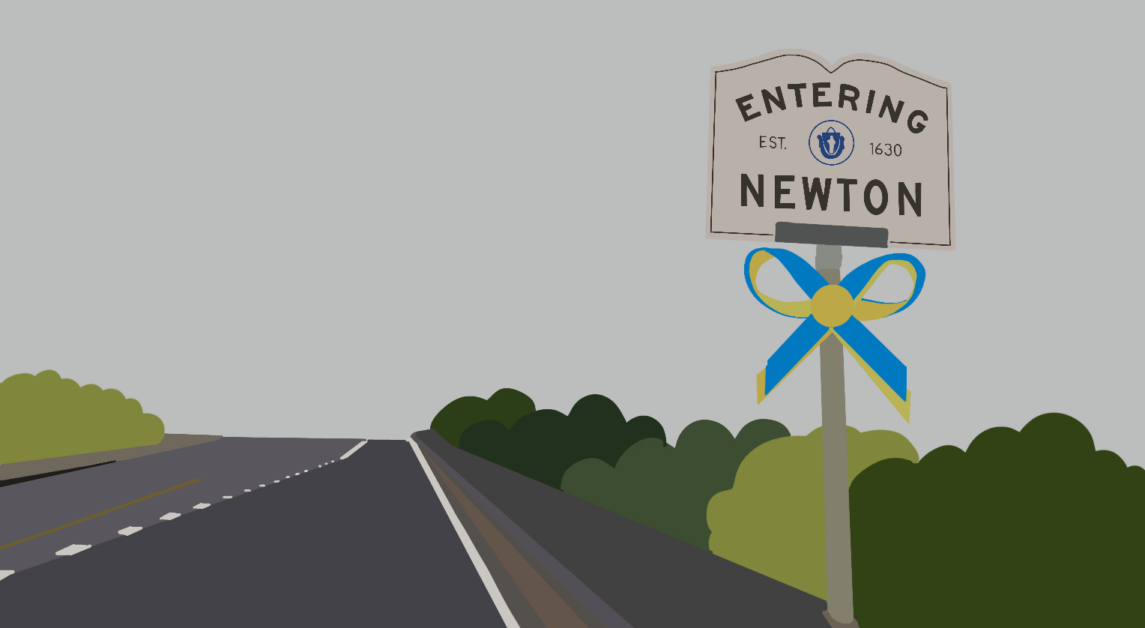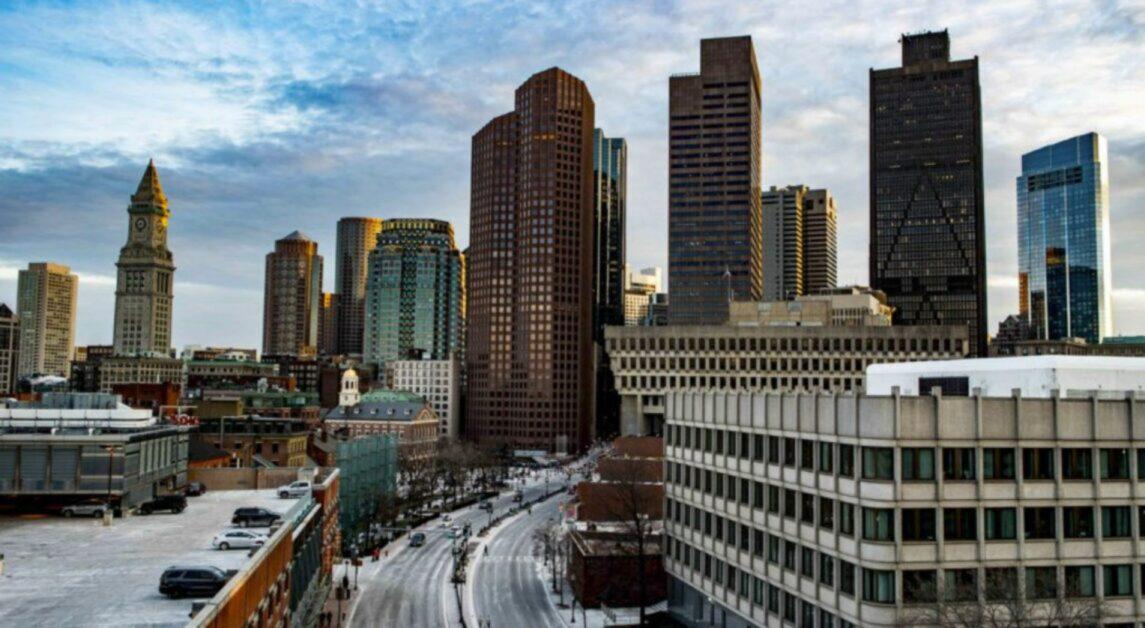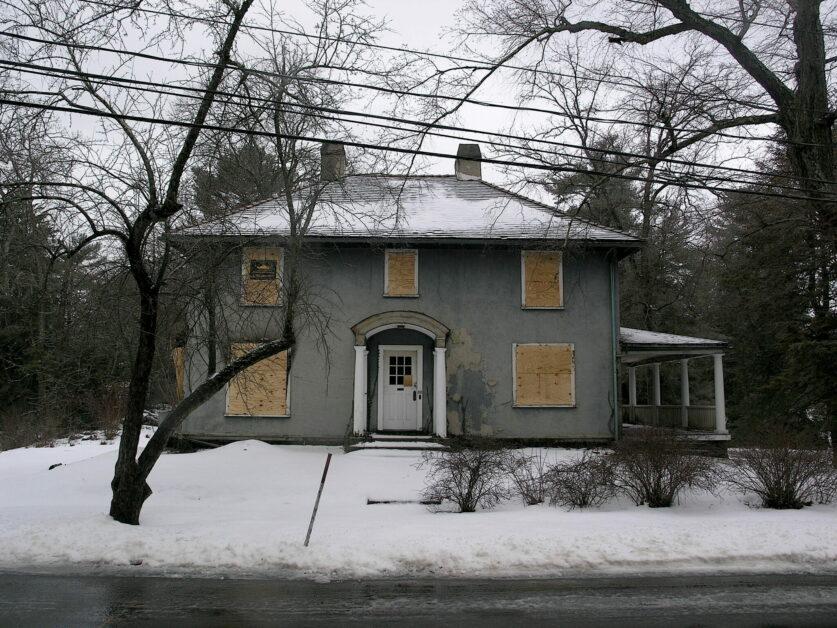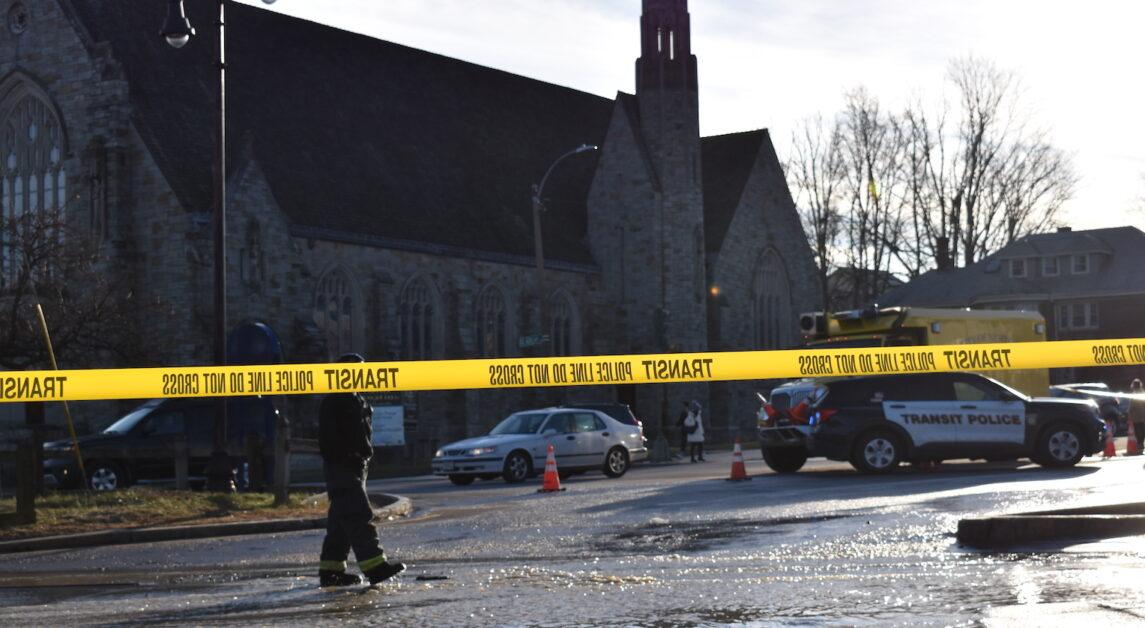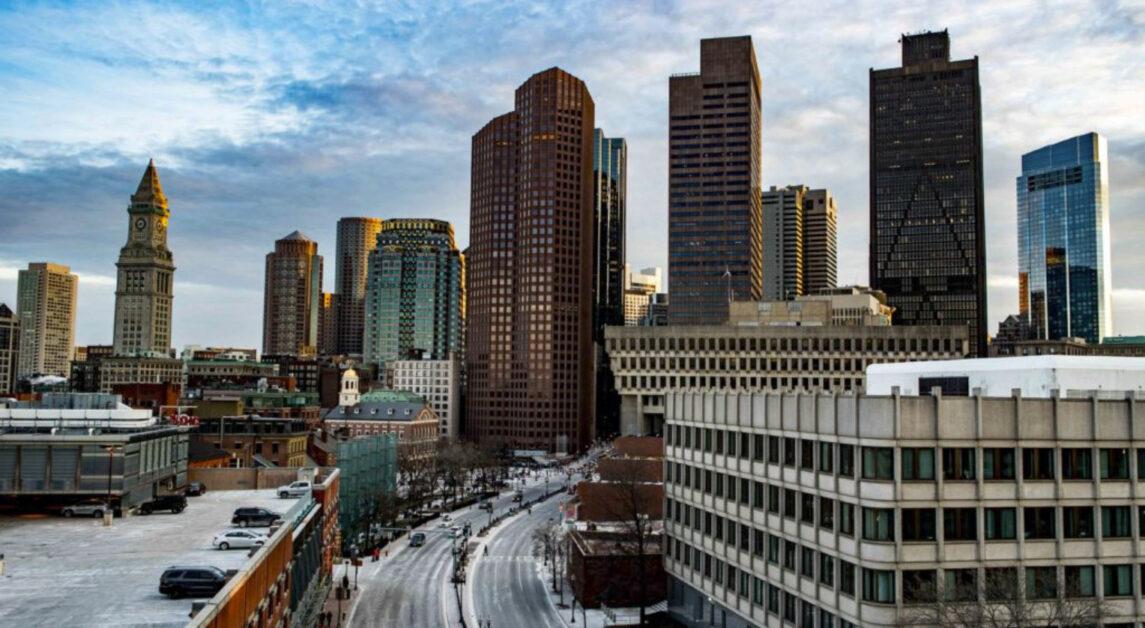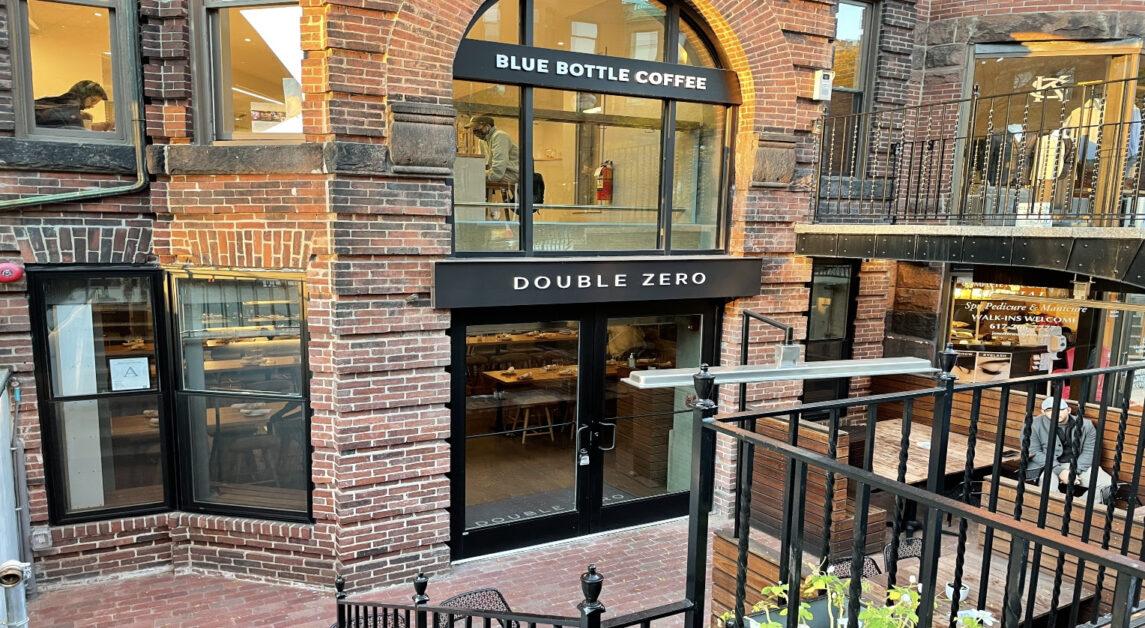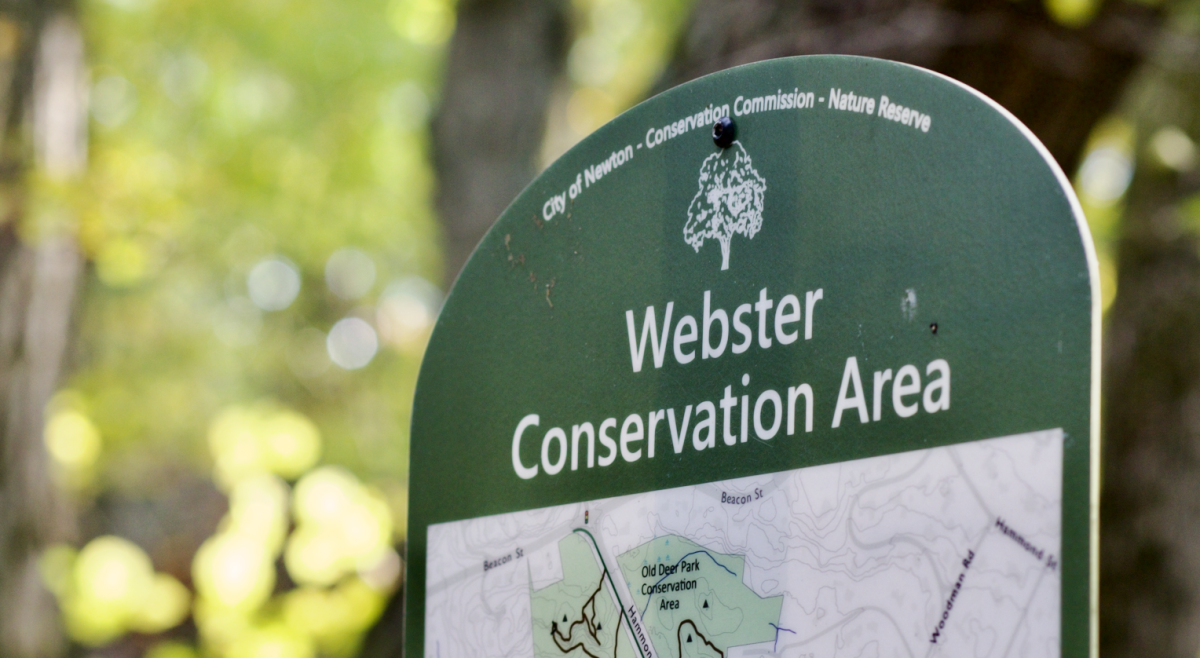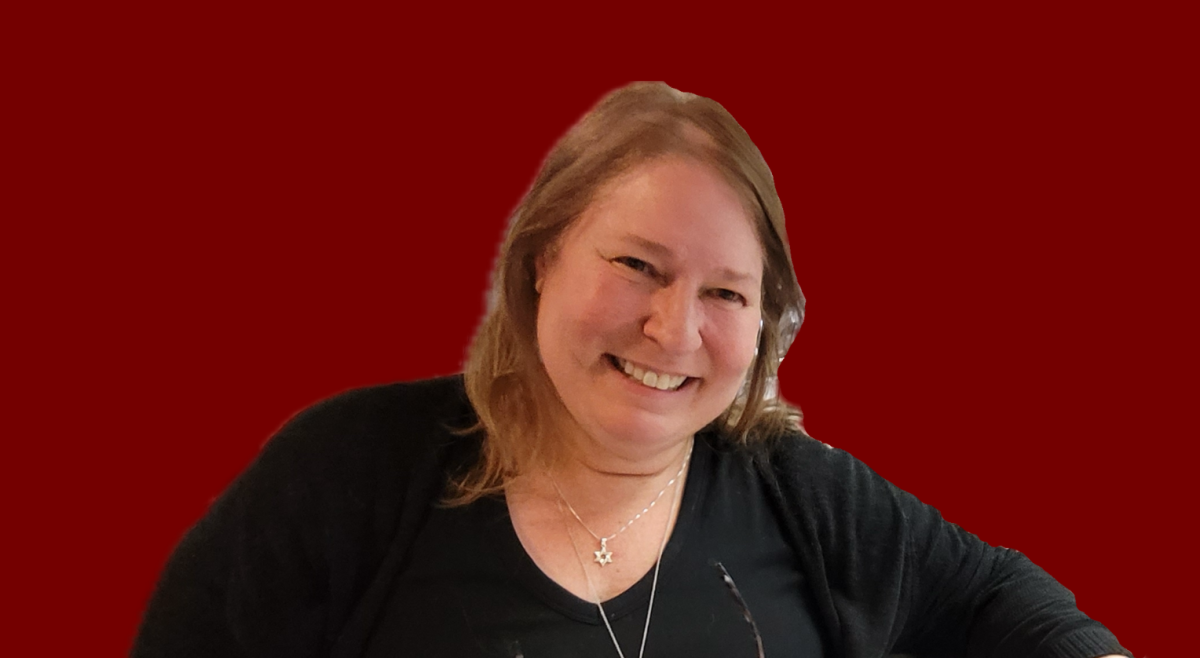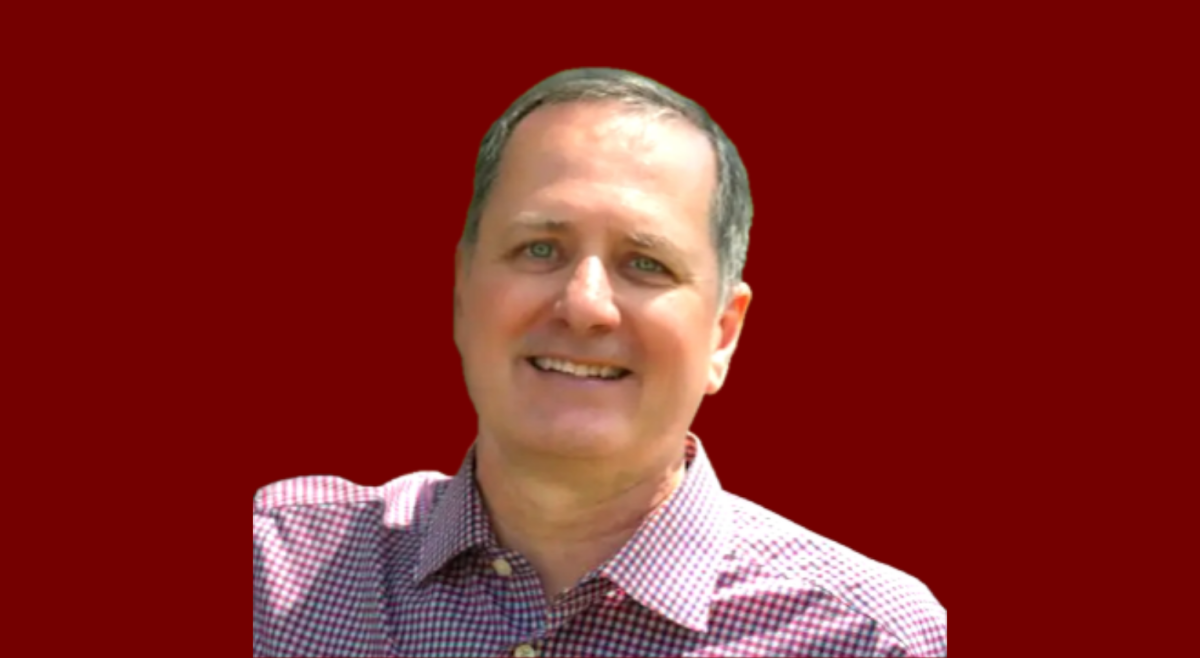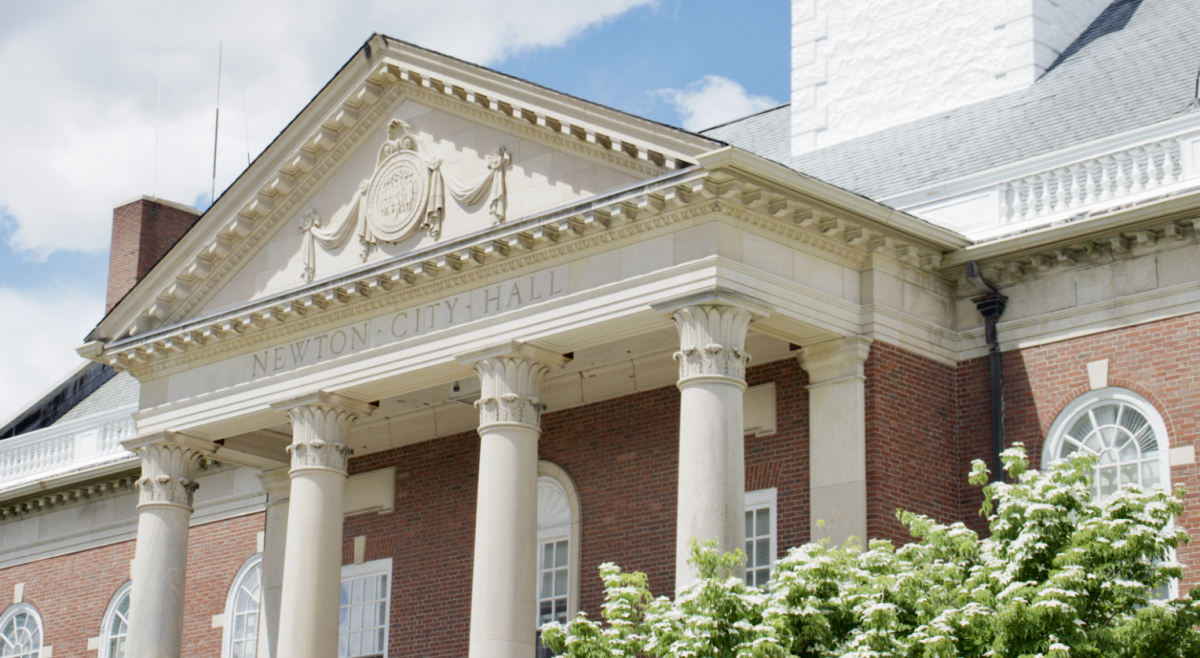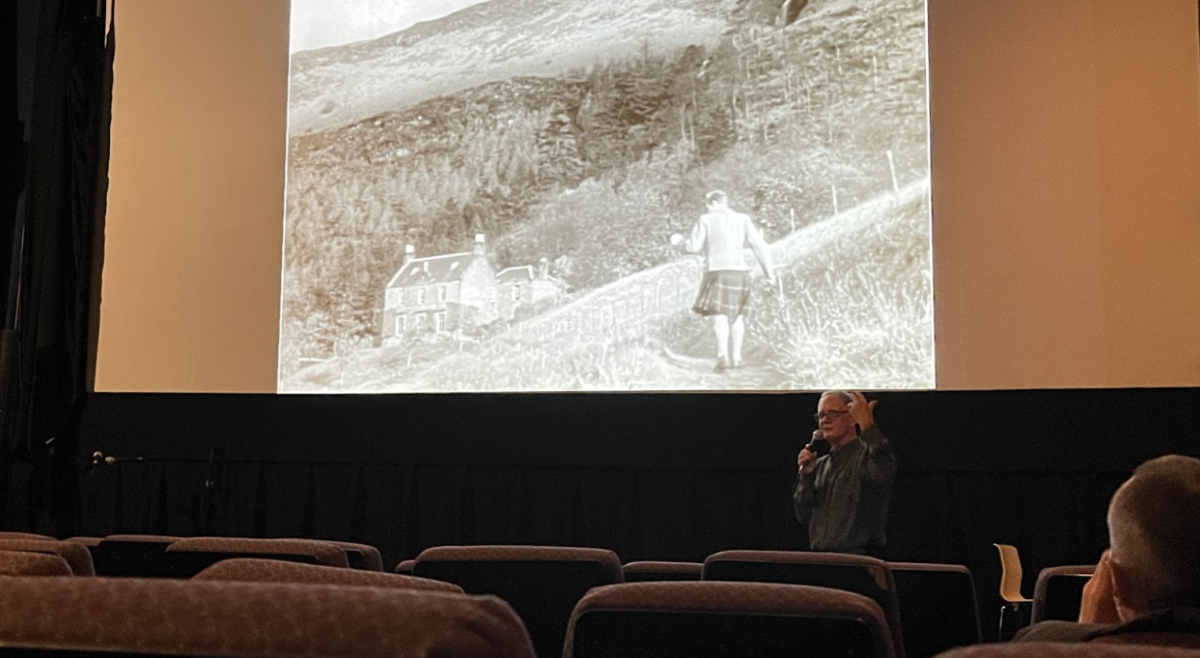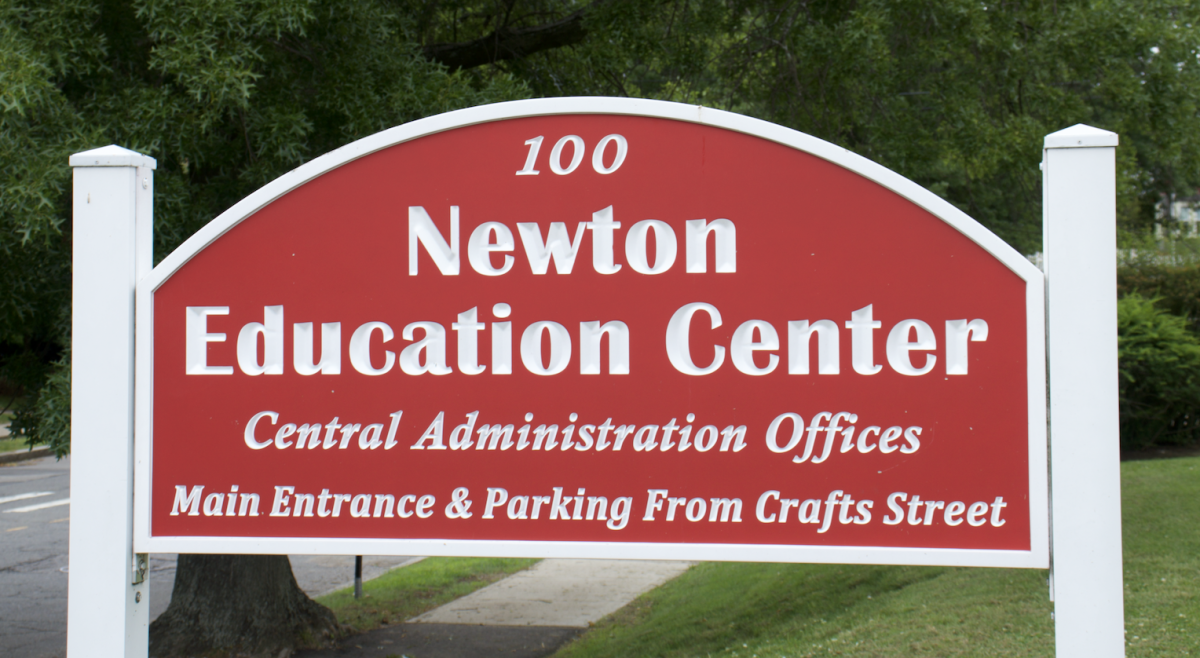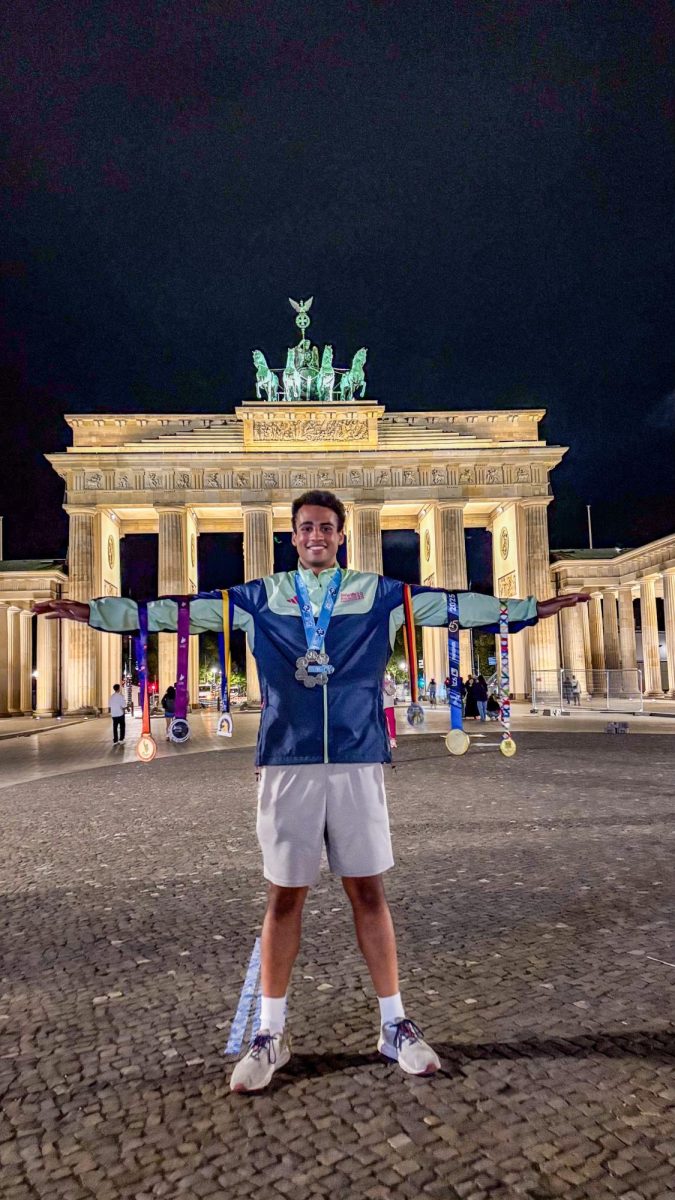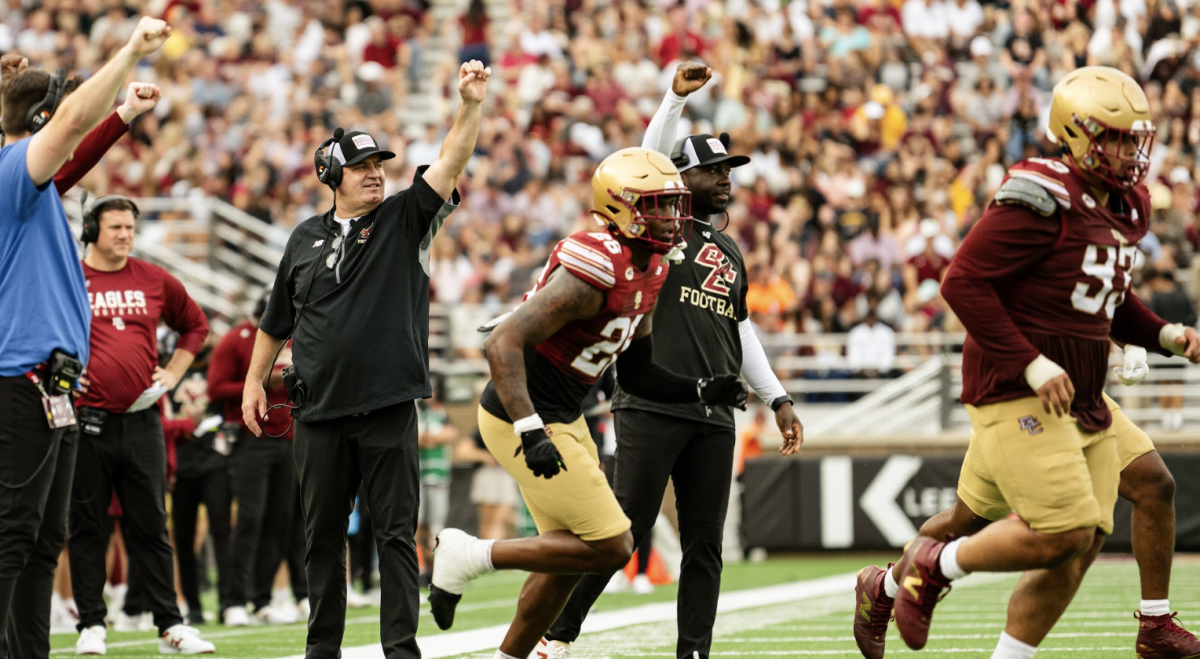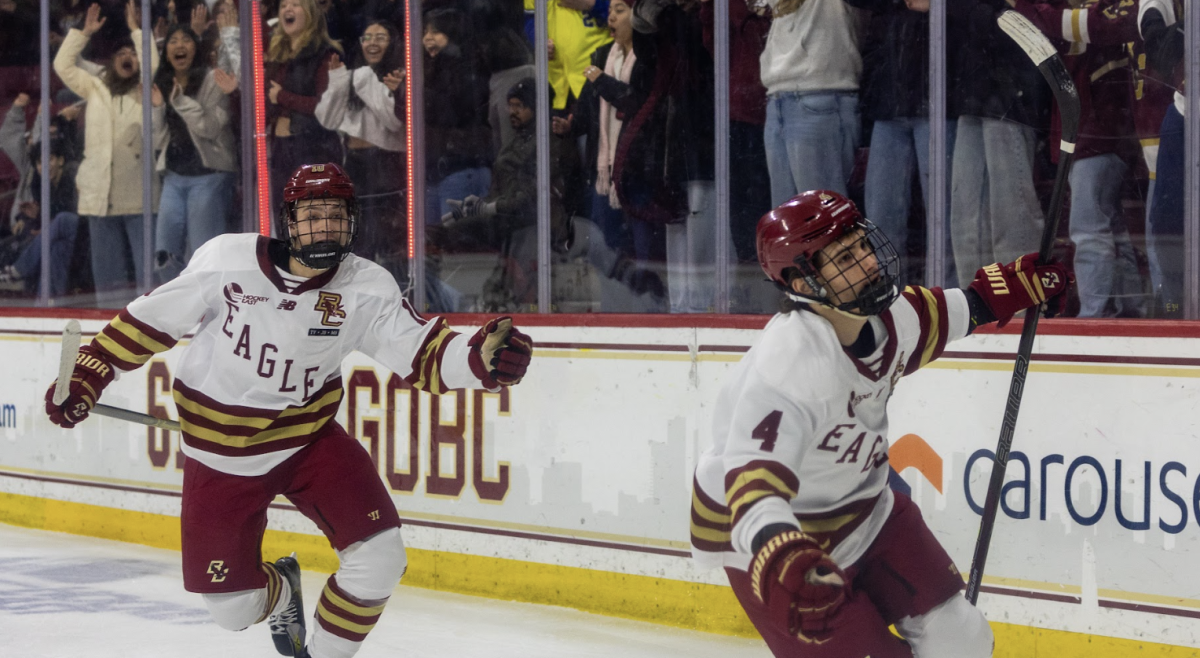A crowd of more than 300 Bostonians—including city officials, prominent activists, business leaders, local residents, and college students—packed a first-floor meeting room at Suffolk University on Thursday night for the city’s first public Boston 2024 meeting.
For more than three hours, Mayor Martin J. Walsh, WCAS ’09, and leaders of Boston 2024 answered questions—many of them hostile—as members of NoBostonOlympics held up signs saying, “Better Schools, No Olympic Games,” “Better Transit, No Olympic Games,” and “Better Housing, No Olympic Games,” in the audience.
Boston 2024 officials began the meeting with a brief video that outlined the proposed details of the Olympic bid, including the bid’s potential to bring improvements to the city in the future. John Fish, chairman of Boston 2024 and chief executive of Suffolk Construction, argued that the public process allows residents to consider the city’s goals for 2030, 2050, and beyond.
“It will be the next generation and the generation after that,” Fish said.
Fish previously recused himself and his company from any Olympic-related building. He is also chair on the Boston College Board of Trustees.
While outlining the bid to the audience, Fish and Boston 2024 leaders highlighted many of the city’s attractive features, including a close proximity of athletic venues. According to Fish, 28 of the 33 planned venues are within a 10-kilometer radius of one another.
Many of the events intend to be held on college and university campuses across the city—what Boston 2024 officials referred to as the “University Cluster.” A cluster of universities, including Harvard, MIT, and Boston University would play host to the majority of athletic events.
“70 percent of the venues will be on college and university campuses,” Fish said. “Whether they be existing or temporary facilities at these locations, that is a substantial benefit to our bid.”
Temporary housing and an Olympic village for athletes was proposed near the University of Massachusetts Boston. About 6,000 beds would be portable, and would be utilized as affordable housing elsewhere in the city, according to David Manfredi, the architect of Boston 2024.
At this point, it is unclear whether BC plans to be involved in the potential 2024 summer games. The University was not referenced as a member of the “University Cluster” located near the Charles River, although Boston College High School was mentioned as a potential host to various athletic events.
“We have said that we are willing to see how we can be of help, if needed, and the committee has mentioned the possibility of using Conte Forum as a potential site,” University spokesperson Jack Dunn said in an email.
After Fish and other Boston 2024 leaders finished outlining their plans for the bid, Mayor Walsh addressed concerns about a lack of transparency in the process. Walsh explained that Boston taxpayers would not be responsible in financing the games, and pledged that the games had the opportunity to expedite much-needed improvements for the city.
“The opportunity to bring the 2024 Olympic games to Boston would speed up our infrastructure and improvements in the city of Boston,” Walsh said. “It’s something that has to happen. We saw it this very week when our MBTA system went down.”
On Monday, a local City Councilor proposed putting Boston’s bid to a citywide vote through four nonbinding questions on this upcoming ballot. Although Walsh had previously opposed this type of referendum, on Thursday night Walsh said the impact of such a vote would depend on whether the referendum was binding. “If it’s a binding referendum and the voters say no, it’s binding and it’s done,” Walsh said. “If it’s not binding, that’s a different story.”
Several local residents at the meeting explained their concerns about the absoluteness of the process and the absence of opponents of the proposal on the speakers’ panel. Walsh noted that he was set to meet with opposition leaders on Friday.
“You’re pushing this down our throats,” one woman said. “Even the way you set this venue up tonight does not feel like a conversation to me.”
A Beacon Hill resident spoke out against the games, criticizing the idea of hosting beach volleyball on the historic Boston Common, arguing it would tarnish its legacy.
“We love the place, and it’s sacred,” he said. “Please protect it.”
Almost all of the audience members who asked questions or commented said they were opposed, but statements commending the bid also received significant applause.
“We did the Big Dig,” another resident said. “We construct all the new roads and everything, and the city is even better now.”
Looking to the future, Walsh and the rest of the Boston 2024 officials stressed to attendees that the bid is currently in a concept phase, and that no final decisions have been made regarding venues and transportation. He also insisted that if the final proposal did not enhance the city and help it accomplish its goals, the city would walk away from the bid.
“This is a very early discussion,” Walsh said. “A lot of what you saw tonight is a concept and we don’t have anything in reality as far as to what exactly will happen. There are going to be many many many discussions about how we move forward in this.”
Featured Images by Drew Hoo / Heights Editor

